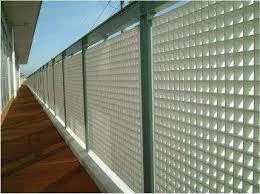
-
 Afrikaans
Afrikaans -
 Albanian
Albanian -
 Amharic
Amharic -
 Arabic
Arabic -
 Armenian
Armenian -
 Azerbaijani
Azerbaijani -
 Basque
Basque -
 Belarusian
Belarusian -
 Bengali
Bengali -
 Bosnian
Bosnian -
 Bulgarian
Bulgarian -
 Catalan
Catalan -
 Cebuano
Cebuano -
 China
China -
 China (Taiwan)
China (Taiwan) -
 Corsican
Corsican -
 Croatian
Croatian -
 Czech
Czech -
 Danish
Danish -
 Dutch
Dutch -
 English
English -
 Esperanto
Esperanto -
 Estonian
Estonian -
 Finnish
Finnish -
 French
French -
 Frisian
Frisian -
 Galician
Galician -
 Georgian
Georgian -
 German
German -
 Greek
Greek -
 Gujarati
Gujarati -
 Haitian Creole
Haitian Creole -
 hausa
hausa -
 hawaiian
hawaiian -
 Hebrew
Hebrew -
 Hindi
Hindi -
 Miao
Miao -
 Hungarian
Hungarian -
 Icelandic
Icelandic -
 igbo
igbo -
 Indonesian
Indonesian -
 irish
irish -
 Italian
Italian -
 Japanese
Japanese -
 Javanese
Javanese -
 Kannada
Kannada -
 kazakh
kazakh -
 Khmer
Khmer -
 Rwandese
Rwandese -
 Korean
Korean -
 Kurdish
Kurdish -
 Kyrgyz
Kyrgyz -
 Lao
Lao -
 Latin
Latin -
 Latvian
Latvian -
 Lithuanian
Lithuanian -
 Luxembourgish
Luxembourgish -
 Macedonian
Macedonian -
 Malgashi
Malgashi -
 Malay
Malay -
 Malayalam
Malayalam -
 Maltese
Maltese -
 Maori
Maori -
 Marathi
Marathi -
 Mongolian
Mongolian -
 Myanmar
Myanmar -
 Nepali
Nepali -
 Norwegian
Norwegian -
 Norwegian
Norwegian -
 Occitan
Occitan -
 Pashto
Pashto -
 Persian
Persian -
 Polish
Polish -
 Portuguese
Portuguese -
 Punjabi
Punjabi -
 Romanian
Romanian -
 Russian
Russian -
 Samoan
Samoan -
 Scottish Gaelic
Scottish Gaelic -
 Serbian
Serbian -
 Sesotho
Sesotho -
 Shona
Shona -
 Sindhi
Sindhi -
 Sinhala
Sinhala -
 Slovak
Slovak -
 Slovenian
Slovenian -
 Somali
Somali -
 Spanish
Spanish -
 Sundanese
Sundanese -
 Swahili
Swahili -
 Swedish
Swedish -
 Tagalog
Tagalog -
 Tajik
Tajik -
 Tamil
Tamil -
 Tatar
Tatar -
 Telugu
Telugu -
 Thai
Thai -
 Turkish
Turkish -
 Turkmen
Turkmen -
 Ukrainian
Ukrainian -
 Urdu
Urdu -
 Uighur
Uighur -
 Uzbek
Uzbek -
 Vietnamese
Vietnamese -
 Welsh
Welsh -
 Bantu
Bantu -
 Yiddish
Yiddish -
 Yoruba
Yoruba -
 Zulu
Zulu
fiberglass products for high temperature
Fiberglass Products for High Temperature Applications
Fiberglass, or glass-reinforced polymer, has emerged as a crucial material in various industries due to its excellent mechanical properties and versatility. One of its notable applications is in high-temperature environments, where traditional materials often fail to perform. This article explores the unique attributes of fiberglass products designed for high-temperature applications, including their composition, benefits, and common uses.
Composition and Properties
Fiberglass is made from fine strands of glass that are woven together into a fabric or laid down in layers with a resin binder. For high-temperature applications, the resin used is often specially formulated to withstand extreme temperatures, typically above 200°C (392°F), without degrading or losing structural integrity. Some fiberglass products employ thermosetting resins, such as epoxy or phenolic, which provide exceptional thermal stability.
The integration of ceramic fibers with conventional fiberglass can enhance its thermal resistance even further. These hybrid materials often exhibit low thermal conductivity, which is essential for thermal insulation in many high-temperature settings. Due to their lightweight nature, fiberglass products can also reduce the overall weight of structures while maintaining strength, making them ideal for various high-performance applications.
Benefits of Fiberglass in High-Temperature Applications
1. Thermal Stability Fiberglass products can retain their structural integrity under extreme temperatures. They resist softening, warping, and thermal degradation, which are common issues faced by metals and plastics in high-heat environments.
2. Corrosion Resistance Unlike metals, fiberglass does not corrode or rust when exposed to corrosive chemicals or moisture, making it an excellent option for industrial applications where environmental factors can lead to material failure.
3. Electrical Insulation Fiberglass acts as an excellent electrical insulator, which is particularly important in high-temperature environments where electrical components may be present. This characteristic prevents electrical failures due to overheating.
fiberglass products for high temperature

5. Versatility in Form Fiberglass products can be manufactured in various forms, including sheets, rods, or custom shapes. This adaptability allows for a wide range of applications and solutions tailored to specific requirements.
Common Applications
Fiberglass products specifically engineered for high-temperature applications can be found in diverse industries
- Aerospace In the aerospace sector, fiberglass composites are used in parts that require lightweight structures capable of withstanding harsh thermal conditions during flight.
- Automotive High-performance automotive components, including exhaust systems and engine covers, often utilize fiberglass due to its heat resistance and lightweight properties.
- Electrical Insulation Products such as fiberglass insulators and bushings are employed in electrical systems to prevent failures during operation at elevated temperatures.
- Industrial Equipment Fiberglass is widely used in manufacturing equipment exposed to high heat, such as furnaces, kilns, and heat exchangers, helping to improve energy efficiency and operational lifespan.
- Thermal Insulation Insulation blankets made from high-temperature fiberglass are commonly used in pipelines, boilers, and other equipment to prevent heat loss and improve energy efficiency.
Conclusion
Fiberglass products for high-temperature applications represent a critical advancement in material science, providing numerous advantages over traditional materials. Their exceptional thermal stability, corrosion resistance, lightweight properties, and versatility make them essential in sectors ranging from aerospace to industrial manufacturing. As technology continues to advance, the development of even more sophisticated fiberglass composites promises to further enhance their capabilities in high-temperature applications, driving innovation across various industries.









